|

photo - mw
_______________________
2.
First forgive the silence
That answers prayer,
Then forgive the prayer
That stains the silence.
Excuse the absence
That feels like presence,
Then excuse the feeling
That insists on presence.
Pardon the delay
Of revelation,
Then ask pardon for revealing
Your impatience.
Forgive God
For being only a word,
Then ask God to forgive
The betrayal of language.
Five Psalms
Mark Jarman
via A la recherche du temps perdu
_______________________

bonfire
via
_______________________
The Un-Shock Doctrine
Slavoj ˇi˛ek
guernica
(....)Perhaps the most succinct characterization of the epoch which began with the First World War is the well-known phrase attributed to Antonio Gramsci: “The old world is dying away, and the new world struggles to come forth: now is the time of monsters.” Were Fascism and Stalinism not the twin monsters of the twentieth century, the one emerging out of the old world’s desperate attempts to survive, the other out of a misbegotten endeavor to build a new one? And what about the monsters we are engendering now, propelled by techno-gnostic dreams of a biogenetically controlled society? All the consequences should be drawn from this paradox: perhaps there is no direct passage to the New, at least not in the way we imagined it, and monsters necessarily emerge in any attempt to force that passage.(....)
_______________________

photo - mw
_______________________
XII. Rising toward Joy
There’s a pleasure. Under tongue & scholar’s lamp, peasant intuition calls up
the same truth. Akin & Akill. Head down now, eyes even with Ribera’s
philosopher dressed in beggar’s rags, Protagoras, holding his book of
knowledge & doubt. Love it here, swimming in black background paint, as if
the Atlantic in winter. There is no straight line. Even a bullet. Wavers. Man
may be the measure of all things, but nature has chaos, pause, & velocity. She
said she could feel my calm demeanor as we followed the path of both
spheres, earth, sun, their tug. Up in Freeport the Native-American woman
smiled acknowledging my sense of genetics, race, lineage. In the blood. I spat
it out: the vernacular. There’s a pleasure. Under tongue & scholar’s lamp.
First thing in the morning, she puts on Mahler’s Songs of a Wayfarer making
me recall Robert Hellman singing in Rockport, while she thinks of her older
brother back there in Kiev. Blood runs under the tongue toward pleasure in
naming. Jolt of desire & resistance. If I could train my ear to hear it: rhythm
of the organs in concert. Heightened senses listening for earth’s lamentation,
her rent, & tears. Rising toward Joy? Rhythm of desire & resistance.
Rhythm of Desire & Resistance, XI-XV
Robert Gibbons
Time Capsule
.....................................................
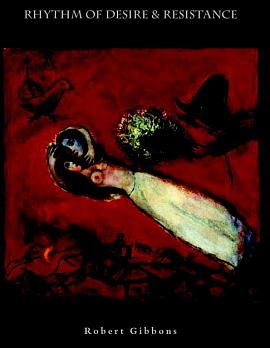
Rhythm of Desire & Resistance
Robert Gibbons
Nine Point Publishing

Natural History
1957
Joseph Beuys
May 12, 1921 - January 23, 1986
_______________________
The Loser
Thomas Bernhard
translated by Jack Dawson
1983 novel based on Glenn Gould
epub download
(....)
One day I dared to begin this work, in the Inglaterra where I had wanted to stay only two days but where I spent six weeks in uninterrupted writing about Glenn. In the end however, when I moved to Madrid, I had only sketches for this work in my pocket and I destroyed these sketches because they suddenly became an obstacle to my work rather than a help, I had made too many sketches, this tendency has already ruined many of my works; we have to make sketches for a work, but if we make too many sketches we ruin everything, I thought, and so it was then in the Inglaterra, I sat in my room without interruption and made so many sketches that I thought I’d gone crazy and recognized that these Glenn-sketches were the cause of my insanity and I had the strength to destroy these Glenn-sketches. I simply put them in the wastepaper basket and watched the maid pick up the wastepaper basket and take it out of the room and make them disappear with the garbage. That was a pleasant sight, I thought, to see the maid pick up my Glenn-sketches, not only hundreds but thousands of them, and make them disappear. What a relief, I thought. I sat at my chair in front of the window for the entire afternoon, at dusk I was finally able to leave the Inglaterra and walk down the Liberdade in Lisbon and go to the Rua Garrett to my favorite bar. I had eight such false starts behind me, all of which ended by my destroying the sketches, before I finally realized in Madrid how I had to begin the work About Glenn, which I then finished in the Calle del Prado, I thought. But already I doubted whether this work was truly worth something and was thinking of destroying it upon my return, everything we write down, if we leave it for a while and start reading it from the beginning, naturally becomes unbearable and we won’t rest until we’ve destroyed it again, I thought. Next week I’ll be in Madrid again and the first thing I’ll do is destroy my Glenn Essay in order to start a new one, I thought, an even more intense, even more authentic one, I thought. For we always think we are authentic and in truth are not, we think we’re intense and in truth are not. But of course this insight has always resulted in none of my works ever being published, I thought, not a single one in the twenty-eight years I’ve been writing, just the work about Glenn has kept me busy for nine years, I thought. How good it is that none of these imperfect, incomplete works has ever appeared, I thought, had I published them, which would have posed no difficulty whatsoever, today I would be the unhappiest person imaginable, confronted daily with disastrous works crying out with errors, imprecision, carelessness, amateurishness. I avoided this punishment by destroying them, I thought, and suddenly I took great pleasure in the word destroying. Several times I said it to myself out loud. Arrival in Madrid, immediately destroy my Glenn Essay, I thought, I must get rid of it as quickly as possible to make room for a new one. Now I know how to set about this work, I never knew how, I always began too soon, I thought, like an amateur. All our lives we run away from amateurishness and it always catches up with us, I thought, we want nothing with greater passion than to escape our lifelong amateurishness and it always catches up with us. Glenn and ruthlessness, Glenn and solitude, Glenn and Bach, Glenn and the Goldberg Variations, I thought. Glenn in his studio in the woods, his hatred of people, his hatred of music, his music-people hatred, I thought. Glenn and simplicity, I thought while contemplating the restaurant. We have to know what we want right from the start, I thought, already as children we have to be clear in our minds what it is we want, want to have, have to have, I thought.
(....) _______________________
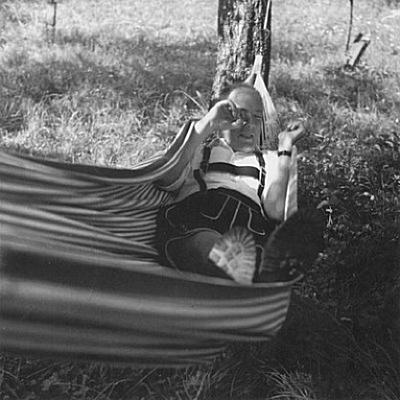
Thomas Berhard
_______________________
Mayan Letters
Charles Olson
ifile pdf
(....)
That is, the gate to the center was, here, as accurate as what you & i have been (all along) talking about - viz., man as object in field of force declaring self as force because is force in exactly such relation &. can accomplish expression of self as force by conjecture, & displacement in a context best, now, seen as space more than a time such;
which, I take it, is precise contrary to, what we have had. as 'humanism,' with, man, out of all proportion of, relations, thus, so mis-centered, becomes, dependent on, only, a whole series of 'human' references which, so made, make only anthropomorphism, and thus, make mush of, any reality, conspicuously, his own, not to speak of, how all other forces (ticks, water-lilies, or snails) become only descriptive objects in what used to go with antimacassars, those, planctariums (ancestors of goldfish bowls) etc.
What has to be battered down, completely, is, that this has anything to do with stage of development. Au contraire. The capacity for (i) the observation & (2) the invention has no more to do with brick or This gate got to, gone in by, 2nd stage, follows, that is, invention produces narration & verse also of a contrary order (the last example of which, which comes down to us, being, ODYSSEY
which, for my dough, is not good enough (ditto only modern example i know, one melville), simply because humanism is (homer) coming in, and (melville) going out
and i take it, a Sumer poem or Maya glyph is more pertinent to our purposes than anything else ... _______________________
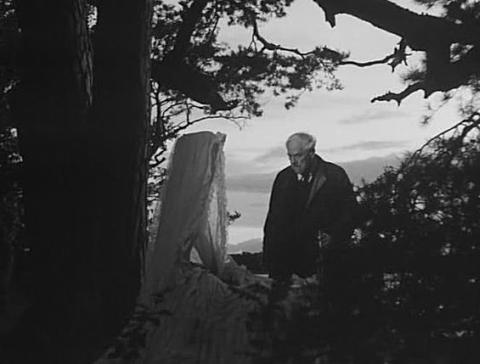
Wild Strawberries
Ingmar Bergman
(1957)
downloadable at
Cinema Of The World
_______________________
Mapping the Field: Comparative Generational Politics and Policies in Ageing Democracies
Achim Goerres, Pieter Vanhuysse
Abstract:
Whereas the call for a political science based study of older people and ageing is not new, relatively little unified progress has been made so far. This chapter maps the field of generational politics and introduces our edited volume "Ageing Populations in Post-Industrial Democracies: Comparative Studies of Policies and Politics". This book brings together an expert set of scholars to investigate generational politics and public policies within an explicitly comparative political science approach. It opens important political process black boxes by asking a number of central questions. How does population aging change political support for redistribution towards different age groups in society, including not just elderly people but also families with children? How, and when, do established parties in aging democracies implement policies that directly hurt the interests of the growing elderly voting bloc, such as pension generosity cutbacks and retirement age increases? Where, and when, do new ‘grey parties’ emerge on the political scene in Western and Eastern Europe and what, if anything, makes such pensioner parties persist over time? The answers provided in this volume promise to be of major interest to scholars in fields such as political economy, political sociology, social policy, comparative politics, demography, and gerontology.
_______________________
The Story So Far: What We Know About the Business of Digital Journalism [pdf]
Columbia Journalism School
via Stephen Downes
_______________________

photo - mw
_______________________
Lessons for the Antiwar Movement from the Pacifists of World War I
Adam Hochschild
Democracy Now!
... as the Obama administration continues to engage in military operations abroad, we turn now to the making—and sustaining—of war from a historical perspective. How do politicians galvanize populations to support wars? Why do people continue fighting in unpopular conflicts even after nationalist fervor has waned?
In his new book, author Adam Hochschild examines these questions and many others through the prism of one of the world’s bloodiest conflicts, World War I. The book is called To End All Wars: A Story of Loyalty and Rebellion, 1914-1918. Adam Hochschild teaches at the Berkeley Graduate School of Journalism, co-founder of Mother Jones magazine, recipient of numerous awards, including the Mark Lynton History Prize and the Lannan Literary Award. He is also a two-time finalist for the National Book Award. ...(more)
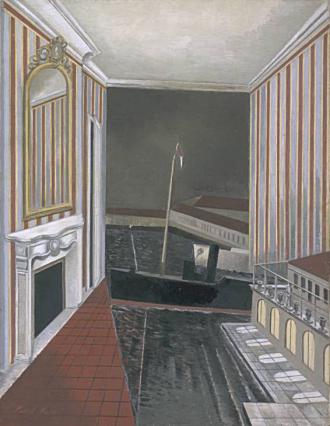
Harbour and Room
Paul Nash
1932-6
_______________________
Palace of Empty Rooms
Paul Lisicky
(....)
The man’s stare is vacant, deliberately vacant. Music thumps the speakers, driving music that’s working too hard to express transformation and joy. That is okay. He is too stunned to feel, anyway. He’s still thinking of that hospice room, the Joni songs, the nimbus of warmth and confusion surrounding that bed. The man is trying to get a sense of his skin and self back, though he’s not in any shape to see what that might be. Maybe that’s why he walked here after he said so long to his friend’s sister-in-law. He simply needed a cool dark space, tight walls, low ceiling, where he could be aware of the sound of his breathing again.
...(more)
Wag’s Revue Issue 9
_______________________
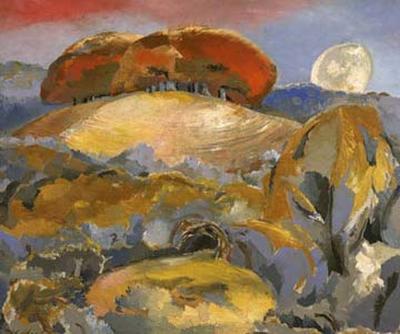
Landscape of the Moon's last phase
Paul Nash
1943/44
_______________________
When I do think my meanest line shall be
More in Time's use than my creating whole,
That future eyes more clearly shall feel me
In this inked page than in my direct soul;
When I conjecture put to make me seeing
Good readers of me in some aftertime,
Thankful to some idea of my being
That doth not even my with gone true soul rime;
An anger at the essence of the world,
That makes this thus, or thinkable this wise,
Takes my soul by the throat and makes it hurled
In nightly horrors of despaired surmise,
And I become the mere sense of a rage
That lacks the very words whose waste might 'suage.
35 Sonnets by Fernando PessoaProject Gutenberg
Indefinite space, which, by co-substance night,
In one black mystery two void mysteries blends;
The stray stars, whose innumerable light
Repeats one mystery till conjecture ends;
The stream of time, known by birth-bursting bubbles;
The gulf of silence, empty even of nought;
Thought's high-walled maze, which the outed owner troubles
Because the string's lost and the plan forgot:
When I think on this and that here I stand,
The thinker of these thoughts, emptily wise,
Holding up to my thinking my thing-hand
And looking at it with thought-alien eyes,
The prayer of my wonder looketh past
The universal darkness lone and vast.
_______________________
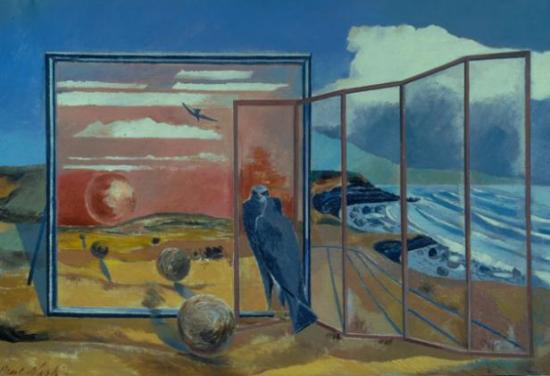
Landscape from a Dream
Paul Nash
1936-8
_______________________
A Round of Rattles, by and with Robert Kelly
presented by Jerome Rothenberg
JERRY’S RATTLE
go, I murmur in my ordinary
language, go home
lovely spooks,
find your way home,
ride the ringing of my rattle all the way
a sound carries
the dead ride our music
the dead ride sounds
the way I ride shadows
nothing else counts
but making sounds
and finding the way home.
home is always somewhere else
that’s why all the music we need
that’s why I rattle my rattle
...(more)
.....................................................
VARIATIONS ON A ROUND OF RATTLES
for Robert Kelly
(....)
3
The business of the dead is spinning shadows, banging leather rattles, faking a language not their own. How good to spend a week away from home, valises packed and ready for a day out in the sun. A rattle makes a sound we love to hear, another rattle leads us where the shadows beckon, and the shadows form a single shadow under which we hide.
...(more)
_______________________
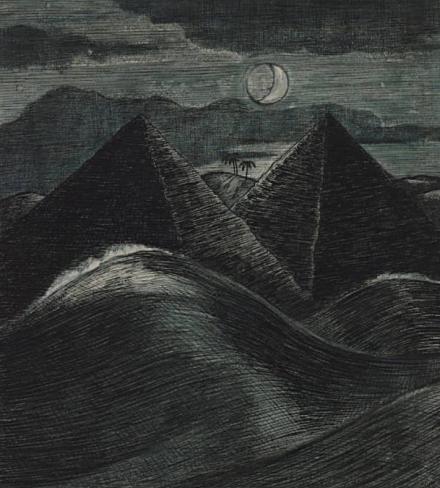
The Pyramids in the Sea
1912
Paul Nash
(11 May 1889 – 11 July 1946)
_______________________
Eclipse
Sarah Hannah
Every so often I am dilated; the pupils
Swallow everything—a catchall soup,
Two cauldrons, stubborn in the bald glare
Of bathroom light. They are hunting sleep—
The sea grass, the blue cot rocking;
In sleep I am a Spanish dancer,
Awaiting my cue at the velvet curtain,
Now and then groping for the sash,
Or on horseback, abducted, thumping
Through pampas. I sleep too much;
I curl in at midday, sheepish,
In strange rooms. Clouds are hurrying by—
The walls, a wash of white; still my eyes
Are mazing through their dark gardens,
The great lamp shut, the crescents duplicating.
It is only a temporary state of affairs.
The sun boils behind the moon.
.....................................................
What Good
Richard Hoffman
Solstice
The fruit,
the red fruit
that wants to fall —
I am that one.
Sarah Hannah, “Cicatrix”
I wonder;
are there things I can say
to you now — as if
to you now — I could not
before? After,
there seems more silence,
perhaps
the silence a suicide
imagines, a silence
perfected, as if
requiring the living
speak. But
the amplitude
of that invitation,
the generosity of it,
everyone welcome,
was not yours, friend,
to give. Thief
of a nullity capacious
beyond imagining,
what good does it do us,
I wonder,
to hear its echoing
of a voice, as if
from a well,
as if from the earth,
as if, perhaps,
yours, perfected,
when it is only our own
still failing
to know what to say.
...(more)
- i.m. Sarah Hannah, 1966-2007
Solstice: A Magazine of Diverse Voices
Spring 2011
Richard Hoffman blogs at Mnemosyne's Memes
_______________________
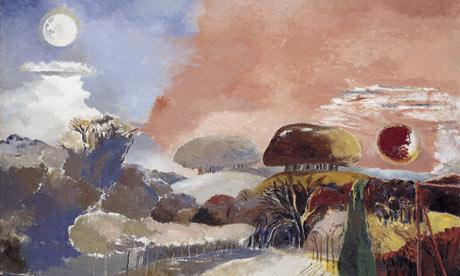
Landscape of the vernal equinox
Paul Nash
1934
_______________________
The Offending Adam
Issue 061
new writing from MC Hylan
A bead forest within the river
MC Hylan
& here comes the sky so bright over the locomotives. So high & pinching away at a wall of bricks. So many floating cathedrals coughing steam. An arch, a window, and up on the edge is the boy who must run with the speeding cars. The sleeping body of the old man on the shore and the sun over it all. The sun nervous as an 8th Avenue elevated train.
Who kicks the prickly chairs? Graves lie beside the piano, the wide space of the floorboard showing like a hole in the order of things. The way darkness slouched with a fur wrap between the eyes of the old man. The man stooped & turned so slowly from you. Another light gleaming off his writing desk.
...(more)
.....................................................
As a poetic element, caesura seems relegated to misty forests and bearded, solemn storytellers. MC Hyland’s poetry demands that we reconsider the caesura in all of its strangeness, beauty, and danger. As absence, the caesura is many things: an awkward pause between insistence and response; a white gap between predication and discovery; the sutures of a shattered life stitched back together. In this generous selection of poems, Hyland incorporates the caesura to fit all of these roles. Her landscapes vary so quickly that one could be in a beach or a theater in the same line. Her words shift their senses, so that a sky’s darkening flocks.
Or does it?
- Ryan Winet
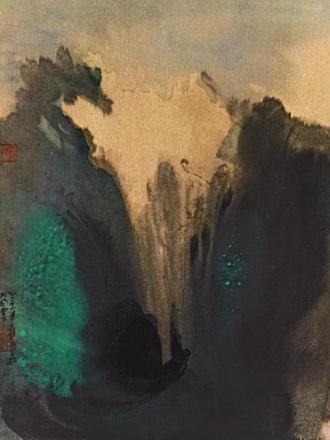
Swiss Mountains
Zhang Daqian
_______________________
The Receptive: A Radio Play
(a monologue in the person of the elderly C.G. Jung)
Rick London
big bridge
i.
I am a fool
The soul has a shadow
The shadow drained the meaning from words
I was left with a few words, nonsense
I had simple things, a chair, a spoon, a smooth gray rock
I began to understand
Science is small, even frightened
Beneath it all, in our homelessness, there is nothing we possess
Now I will draw a picture
I said I am a fool
I draw what I see when I draw
The world is inarticulate
Once, I listened to a stone wall the way you would listen to a river
I began to speak its absent language
Stripped of everything but beginnings, I stayed on the cusp
The language of the passing world is make do
I began to speak this absent language
(....)
vi.
As I said, we must find something simple
As I said, I listened to a wall the way you would listen
to a river
If I understand it correctly, the death-haunted teaching
prescribes intervals of a kind of soft-focus body contact with the world
and this has become one of my own homespun apothegms:
maintain body contact — poised in the moment and cushioned by the breath
But contact with what?
The world is evanescent
Our modern physics tells us as much
Fundamentally, there’s nothing here
How much of life can a person let go of?
This is an intermediary question
According to the death-haunted teaching nothing sticks
and the ethical life is said to reflect
this universal ease,
void,
undivided into here and there
Now I will draw a picture
Care is the color of the mild sky
I pull my brush lightly over this paper
I admit these days the science I seek has little use for weights or measures
And even our most ideal thoughts, as balanced as clouds, reveal nothing
of salvation
Even our most ideal emotions, as balanced as clouds, reveal nothing
of salvation
I admit these days I have little use for the language of comparison,
the secular argot
...(more)
Big Bridge 15
Spring 2011
_______________________

L'été
1912
Mikhail Larionov
June 3, 1881 – May 10, 1964
_______________________
Take a Number on Saturdays
Zahra Hosseinzadeh
Translated from Dari by Zuzanna Olszewska
Take a ticket, the prescription, and a handful of torn money,
stand at the end of the queue on Saturdays, take a number.
Tayyebah’s unwell again—you’ve got to make a phone call
and negotiate a day off from the office.
No matter what she sees in her random way, be patient:
pull the moon or a star out of her sleeve.
Shopping isn’t bad, all the colors make her happy;
buy her some clothes, bangles, shoes, and earrings.
Don’t let your focus stray from the hunt for a bird or a stone,
and tell Tayyebah to stay away from people.
If the shrink has no time to see you again,
take those two suspicious little pills again.
No! Take her to the cinema, or head for the hills,
just don’t give in to the pressures of the world.
And then, if all else fails, ask the Holy Book—
Will my sister get better? Do a divination . . .
Take a ticket, the prescription, and a handful of torn money,
stand at the front of the queue on Saturdays, take a number.
- Mashhad, Iran, 2007
Writing from Afghanistan
words without borders
_______________________
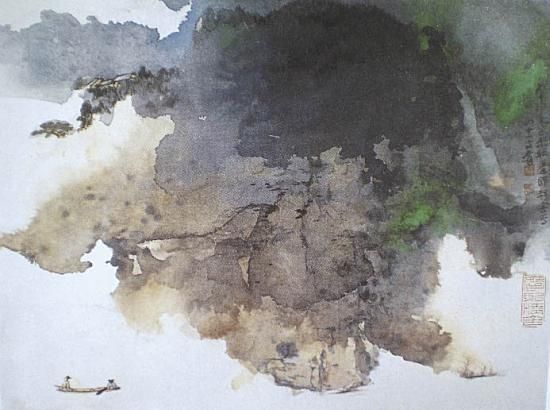
A Returning Boat on a Spring River
Zhang Daqian
(May 10, 1899 - April 2, 1983)
_______________________
I’ve written a lot about generalist inquiry and its limitations at this blog, and how appreciative I’ve been of my colleagues’ invitation to teach and write in that spirit. I’ve gotten the sharp sense this year that the invitation is being withdrawn, and not just here, but for other faculty at other institutions. Generalism is dismissed with new sharpness as “loosey-goosey”, “superficial”, “empty”. I’ve been a smuggler for two decades, but for the first time in my life as a professor I’m now running into active border patrols.
- Timothy Burke
A Generalist’s Work, Day 1Timothy Burke
Easily Distracted
I’m still feeling rankled by various casual dismissals of generalism and synthesis as a mode of academic and intellectual labor. It’s particularly odd coming from humanists given that the cultural work that many humanists study has frequently been created by generalists of one kind or another. Not to mention that formal humanist inquiry has a long history that predates the modern research university, and all of that work was done by generalists.
I’ve decided to add a category to my blog in which I document the work of reading, study and writing that informs my practice as a generalist and synthesizer. I’m not entirely happy with having to prove that this approach also requires hard work, since I think that concedes more than I’d like to a productivist, bean-counting sensibility. ... the point is partly to demonstrate that generalism doesn’t just arise spontaneously from personal intuition, that it is a practice of investigation and inquiry. My generalism is very much mine, much as two specialists in a relatively narrow field of study can nevertheless be extremely different in their understanding of the field. I’m sure over the course of a year of documenting my readings and work, the pattern of my interests will become fairly clear....(more)
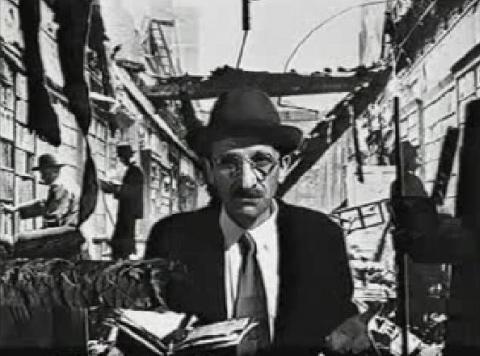
One Way Street: Fragments for Walter Benjamin
(1993)
Directed by John Hughes
58 min.
ubu film
_______________________
Poems by Ayane Kawata
Translation and Preface by Malinda Markham
HOW2
The pure window
From the inside
From the inside
Throw it open:
Gaily the scream must scamper away.
...(more)
_______________________

Jüri Mildeberg
The Swamp Ladies of Estonia 2
50 Watts
_______________________
Interview with Lars Iyer
At one time, I wanted to ‘reverse engineer’ a philosophy and a politics from a reading of Blanchot’s literary criticism, his fiction and, in particular, his political writings. I even wanted to develop a Blanchotian form of reflection on contemporary culture. I don’t think I succeeded.
The distance between Blanchot’s concerns and those of our own times is great. In the end, I felt overwhelmed by this distance, and felt that marking it in some way might be valuable in itself. We live in a media-rich, globalised, demotic world, and one overwhelmed by the political project of neoliberalism. In a real sense, we come after literature, even after that sense of literary posthumousness we can find in Blanchot’s fiction. ...(more)
_______________________

photo - mw
_______________________
Why Facts No Longer Matter in the Media Discourse
How Media Outlets Became The New “Carnival Barkers”
Danny Schechter
(....)John Cory commented on the media role in legitimating the birther issue and turning it into a form of entertainment, calling it " a sorry and sad day for America.”
“What does it say about our 'media' that they have spent so much time and so much effort promoting crazy over reality? That our 'media' relishes circus clowns jumping out of their clown-cars and spraying clown-seltzer everywhere and then giddily covers the wet and stained audience reaction while ignoring the burning of fact?"
So, it is the media system itself, not Donald Trump or some crazy, that is the real “carnival barker” in the President’s words, Their programs program the audience by constantly and continually framing issues in a trivial matter. Manipulating emotion is their modality, doubt their currency and cynicism their methodology, except, of course, on issues like the economy, Israel or US wars.
The shame of it is that they know what they are doing, know what the impact of what passes for “coverage” will be, but do it anyway.
...(more)
_______________________
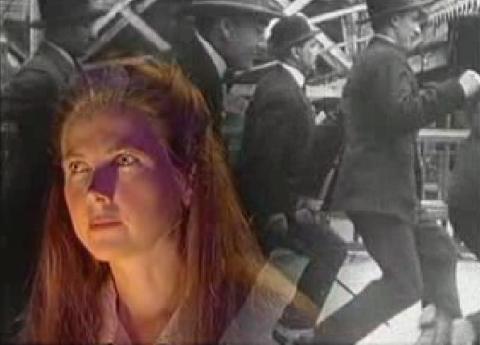
One Way Street: Fragments for Walter Benjamin
_______________________
America’s Killing Sprees Define Who We Are As A People
Gar Smith
(....)
Are we citizens of a country that acts under Constitutional law or are we a nation that glories in our ability to invade any country that our leaders choose and gathers to cheer as our leaders send armadas to cross sovereign territories half-a-world away to openly murder foreign leaders we have targeted for death?
Are we a nation that celebrates the Pentagon’s ability to steer drone aircraft from the safety of control rooms in Nevada that rain Hellfire missiles on village homes in Pakistan? Do we cheer the NATO bombs that target despots and wind up killing their sons, brothers and grandchildren? Do we wave our flag in the face of the world and call it “victory” when we shoot our unarmed enemies in cold-blood, gun down their women and kill their sons? ...(more)
_______________________
Tragedy of the Data Commons
Jane Yakowitz
Abstract:
Accurate data is vital to enlightened research and policymaking, particularly publicly available data that are redacted to protect the identity of individuals. Legal academics, however, are campaigning against data anonymization as a means to protect privacy, contending that wealth of information available on the Internet enables malfeasors to reverse-engineer the data and identify individuals within them. Privacy scholars advocate for new legal restrictions on the collection and dissemination of research data. This Article challenges the dominant wisdom, arguing that properly de-identified data is not only safe, but of extraordinary social utility. It makes three core claims. First, legal scholars have misinterpreted the relevant literature from computer science and statistics, and thus have significantly overstated the futility of anonymizing data. Second, the available evidence demonstrates that the risks from anonymized data are theoretical - they rarely, if ever, materialize. Finally, anonymized data is crucial to beneficial social research, and constitutes a public resource - a commons - under threat of depletion. The Article concludes with a radical proposal: since current privacy policies overtax valuable research without reducing any realistic risks, law should provide a safe harbor for the dissemination of research data.
Social Science Research Network
_______________________
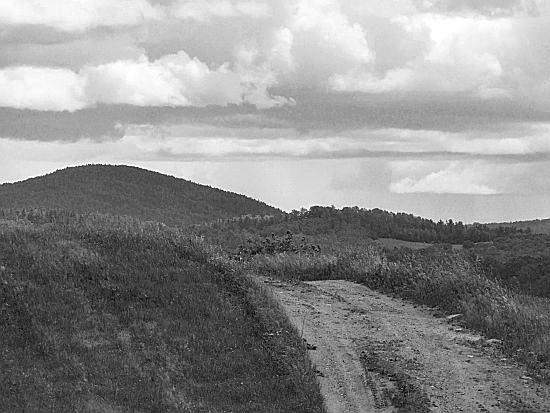
photo - mw
_______________________
Reading Ada, or Ardor
Justin E. H. Smith
(....)It strikes me now that in fact Nabokov was drawing more on the richness of the Russian language when he was writing in English than the party-sanctioned authors were when they were writing directly in Russian. Ada, or Ardor, in particular, is a trilingual novel (French being the third, and certainly lesser of the three components), and to say that it was written in English doesn't really do justice to Nabokov's project. It was written through English, mostly, but there would be nothing left of the endeavor if the Russian and French vocabulary, along with the interlinguistic jeux de mots that straddle more than one of the three languages, were to be eliminated. It is through English, but it is about the way different natural languages connect up or fail to connect up with one another. It is about the way language limits expression, and it is an attempt to push through those limits....(more)
_______________________

2011 Massachusetts Poetry Festival
May 12, 13 & 14th
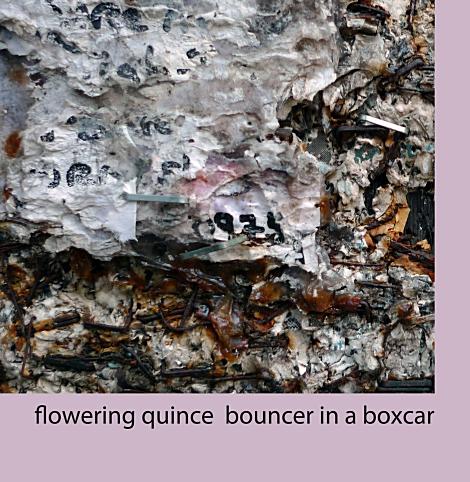
Five Haiga
Cherie Hunter Day
otoliths - issue twenty-one
_______________________
Rhythm of Desire & Resistance, XI-XV
Robert GibbonsXV. Note from Underground
These boots tossed in the back of the closet hid for so long they came out
young, nervous, tongue-tied. But walked all day without misstep. On the path
spring's stones showed renewed interest in the old man wearing youthful
boots. Blessings by some. Mere inquisitiveness, others. Sky bent down, equal
to the ground. But the boots became restless, sped underground, a
Dostoevskian descent. There's a seam, rent, laceration to his use of the word
nadryv between moral & mortal. Both sides of the wound like a smile, or cry.
Two nights ago I asked my fellow traveler where the cave we'd just passed in
the vehicle of the dream led. "Deep below the mountain," he answered. Last
night the woman vowed to show me around the museum where I'd worked
in the previous century, knowing Degas & Cezanne, van Gogh & Gauguin,
Rothko & Motherwell, Rauschenberg & Johns hung around each bend, if we
could only get to the elevator (we never got to.) She must have simply seen
the old, weary eyes of the man before her, rather than glancing down at my
feet. Otherwise, we could have taken the stairs to the floors above.
...(more)
Time Capsule
The Killing Floor
_______________________
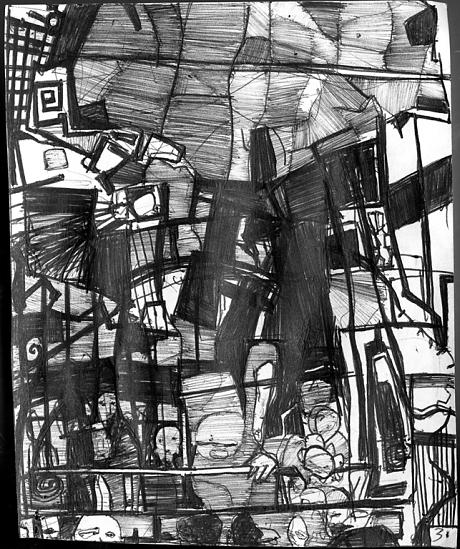
A screaming comes across the sky...
Above him lift girders...
the carriage, which is built on several levels...
drunks, old veterans...hustlers...
derelicts, exhausted women with more children...
Illustrations For Each Page of Gravity's Rainbow
Zak Smith
Does Britannia, when it sleeps, dream? Is America her dream? -- in which all that cannot pass in the metropolitan Wakefulness is allow'd Expression away in the restless Slumber of these Provinces, and on West-ward, wherever 'tis not yet mapp'd, nor written down, nor ever, by the majority of mankind, seen, -- serving as a very Rubbish-Tip for subjunctive Hopes, for all that may yet be true, -- Earthly Paradise, Fountain of Youth, Realms of Prester John, Christ's Kingdom, ever behind the sunset, safe till the next Territory to the West be seen and recorded, measur'd and tied back in, back to the Net-Work of Points already known, that slowly triangulates its Way into the Continent, changing all from subjunctive to declarative, reducing Possibilities to Simplicities that serve the ends of Governments, -- winning away from the realm of the Sacred, its Borderlands one by one, and assuming them unto the bare mortal World that is our home, and our Despair.
-
Thomas Pynchon (b. May 8, 1937), Mason & Dixon
_______________________
 Gary Snyder
b. May 8, 1930
photo by Allen Ginsberg
1991
second shaman song
Gary Snyder
Squat in swamp shadows.
mosquitoes sting;
high light in cedar above.
Crouched in a dry vain frame
– thirst for cold snow
– green slime of bone marrow
Seawater fills each eye
Quivering in nerve and muscle
Hung in the pelvic cradle
Bones propped against roots
A blind flicker of nerve
Still hand moves out alone
Flowering and leafing
turning to quartz
Streaked rock congestion of karma
The long body of the swamp.
A mud-streaked thigh.
Dying carp biting air
in the damp grass,
River recedes. No matter.
Limp fish sleep in the weeds
The sun dries me as I dance
From Anthropologist to Informant, a Field Record of Gary Snyder Part One and Part TwoNathaniel Tarn courtesy of Jerome Rothenberg Poems and Poetics
The flourishing commons: disembodied conversation Ivan Illich, Paul Goodman, and Gary Snyder Whole Earth, Fall, 1998
_______________________
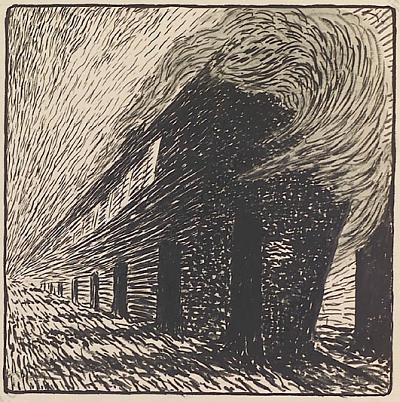
Wind
1920s
Erwin Stolz
(1896-1987)
Boris Wilnitsky Fine Art
via
_______________________
Eleven Stories
Osama Alomar
translated from the Arabic by the author and C. J. Collins
conjunctions
Thread of Light
I kept my head held high with pride before the locked door of life. Because of that I didn't see the thread of light creeping beneath the door until old age had bent my back.
...(more)
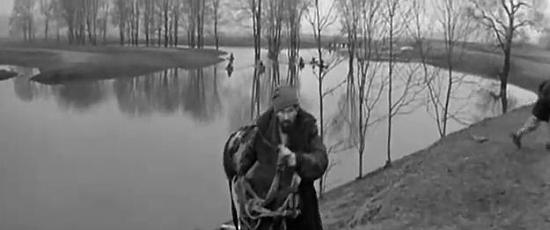
Andrei Rublev
Andrei Tarkovsky
youtube
from Open Culture
We have previously featured films by the great Russian filmmaker Andrei Tarkovsky. So we’re overjoyed to report that the Moscow film company Mosfilm has just made 50 Russian classics (including Tarkovsky’s Mirror, Solaris, and Andrei Rublev) available on YouTube in high definition. According to Yahoo News, Mosfilm has pledged to release five more films each week, all in HD with English subtitles, eventually bringing the total for the year to 200.
You can look over the whole list of currently available classics at Mosfilm’s YouTube channel.
_______________________
The House In The Woods
Randall Jarrell
At the back of the houses there is the wood.
While there is a leaf of summer left, the wood
Makes sounds I can put somewhere in my song,
Has paths I can walk, when I wake, to good
Or evil: to the cage, to the oven, to the House
In the Wood. It is a part of life, or of the story
We make of life. But after the last leaf,
The last light--for each year is leafless,
Each day lightless, at the last--the wood begins
Its serious existence: it has no path,
No house, no story; it resists comparison...
One clear, repeated, lapping gurgle, like a spoon
Or a glass breathing, is the brook,
The wood's fouled midnight water. If I walk into the wood
As far as I can walk, I come to my own door,
The door of the House in the Wood. It opens silently:
On the bed is something covered, something humped
Asleep there, awake there--but what? I do not know.
I look, I lie there, and yet I do not know.
How far out my great echoing clumsy limbs
Stretch, surrounded only by space! For time has struck,
All the clocks are stuck now, for how many lives,
On the same second. Numbed, wooden, motionless,
We are far under the surface of the night.
Nothing comes down so deep but sound: a car, freight cars,
A high soft droning, drawn out like a wire
Forever and ever--is this the sound that Bunyan heard
So that he thought his bowels would burst within him?--
Drift on, on, into nothing. Then someone screams
A scream like an old knife sharpened into nothing.
It is only a nightmare. No one wakes up, nothing happens,
Except there is gooseflesh over my whole body--
And that too, after a little while, is gone.
I lie here like a cut-off limb, the stump the limb has left...
Here at the bottom of the world, what was before the world
And will be after, holds me to its back
Breasts and rocks me: the oven is cold, the cage is empty,
In the House in the Wood, the witch and her child sleep.
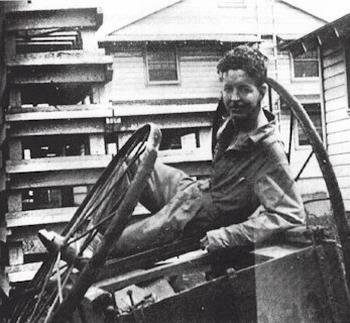
Randall Jarrell
b. May 6, 1914
Randall Jarrell in the army, 1943
Children Selecting Books In A Library
Randall Jarrell
With beasts and gods, above, the wall is bright.
The child's head, bent to the book-colored shelves,
Is slow and sidelong and food-gathering,
Moving in blind grace ... yet from the mural, Care
The grey-eyed one, fishing the morning mist,
Seizes the baby hero by the hair
And whispers, in the tongue of gods and children,
Words of a doom as ecumenical as dawn
But blanched like dawn, with dew.
The children's cries
Are to men the cries of crickets, dense with warmth
-- But dip a finger into Fafnir, taste it,
And all their words are plain as chance and pain.
Their tales are full of sorcerers and ogres
Because their lives are: the capricious infinite
That, like parents, no one has yet escaped
Except by luck or magic; and since strength
And wit are useless, be kind or stupid, wait
Some power's gratitude, the tide of things.
Read meanwhile ... hunt among the shelves, as dogs do, grasses,
And find one cure for Everychild's diseases
Beginning: Once upon a time there was
A wolf that fed, a mouse that warned, a bear that rode
A boy. Us men, alas! wolves, mice, bears bore.
And yet wolves, mice, bears, children, gods and men
In slow preambulation up and down the shelves
Of the universe are seeking ... who knows except themselves?
What some escape to, some escape: if we find Swann's
Way better than our own, an trudge on at the back
Of the north wind to -- to -- somewhere east
Of the sun, west of the moon, it is because we live
By trading another's sorrow for our own; another's
Impossibilities, still unbelieved in, for our own ...
"I am myself still?" For a little while, forget:
The world's selves cure that short disease, myself,
And we see bending to us, dewy-eyed, the great
CHANGE, dear to all things not to themselves endeared.
_______________________

Canadian Tulip Festival
Ottawa
May 6 - 23, 2011
_______________________
The triumph of Harper's Conservatives is a revolution in Canada. Grumpy old men are happy but modernists, women, young people, immigrants, people fond of evidence-based policy will be much less so. It's the beginning of a kind of war, conducted in a dull, quietly agonising way.
-
Heather Mallick
_______________________
The Politics of Revenge and Submission
Phil Rockstroh
Osama bin Laden is dead. And so is the U.S. republic. We had to destroy our freedoms in order to save them. What is left to save from the next rampaging dragon when the knights, sworn to kill the monster, destroy everything in their path in the pursuit of him? One killer is dead. Now what are we going to do with all the killers in our midst who killed him....(more)
_______________________

1914
Ernst Ludwig Kirchner
b. May 6, 1880
_______________________
How is Literature Possible?
Maurice Blanchot
Why this fear of commonplaces? It is because, according to terrorist critics, cliches are a sign of laziness and inertia. The writer who takes refuge in them revels in a kind of indolence which subordinates him to ready-made forms. He still believes he is thinking for himself; this is his mistake. He accepts a succession of words which imposes a fixed order upon him and narrowly confines his thought. The use of commonplace expressions thus leads to a serious abuse, which is verbalism. The author who is a victim of conventional sentences is no longer in control of what he is saying. And his words, triumphing over the exact meaning to which they ought to correspond, rebel against the mind which attempts to guide them, weigh upon it with all of their brute force, and make it aware of how degradingly all-powerful that force is. If we reflect on certain words, such as freedom, democracy, order, and on the disorderliness that can result if they are used carelessly, it becomes clear to us that writers have good reason to be vigilant in preventing a facile subservience. Apparendy given over to licence and anarchy, they are in fact engaged in repudiating chance, darkness, confusion, destroying idols and battling with monsters. Terror, in brief, as the enemy of commonplaces and rules, is engaged in a fight against a sickness of language, and in the fear that words, left to themselves and freed from their meaning, might exert over the minds and hearts of men a formidable power, this terror attempts to restore to inspiration and creative force a boundless empire. Jean Paulhan notes that this conception has found in Bergson's philosophy the privileged doctrine which has led it to self-awareness. Following Bergson's advice, it has invited writers continually to resist practical, ordinary language in order to rediscover the fluid forms of a deeper life. It goes beyond apparent logic, fixed by everyday words, in search of an unexpressed and probably inexpressible reality; it strives to break the network of conventions in order to get through to a world that is still innocent; it lays claim to a virginal contact, to brand-new meanings, finding within this aspiration towards an extreme purity the justification for the imperious decrees which cause it to regard with suspicion the savoir-faire and technique proper to all usages of language.
This then is terror, its claims, its hates, its secrets. What are we to think of it? If we look a little more carefully at its grievances, we notice first of all that they don't correspond to the simplest observations and then that they are based on a remarkable kind of illusion. It would be rash to believe that the use of commonplace expressions always presumes laziness or leads to verbalism.
The Blanchot Reader
Edited by Michael Hollan
mediafire pdf
 Chicago
1955
Charles Swedlund
Stephen Daiter Gallery
via
_______________________
I learned the grass as I began to write . . .
Arseny Tarkovsky
Translated by Philip Metres; Dimitri Psurtsev
(....)
I loved my tormenting task, this intricate
Placing of words, fastened by their light,
Riddle of vague feeling and a simple answer
To the mind. In “truth” I thought truth appeared.
My tongue was true, like a spectral analysis,
And words gathered around my feet to listen.
What’s more, my friend, you’re right to say
I heard one-quarter the noise, saw half the light,
But I did not debase the grasses, or family,
Or insult the ancestral earth by being blithe,
And as long as I worked on earth, accepted
A gift of coldest spring water and fragrant bread,
Above me unfathomable sky still stood,
And stars tumbled around my head.
...(more)
Two Lines Online
Center for the Art of Translation
_______________________
Sculpting in Time
Andrey Tarkovsky
ifile pdf
(....)
Time is a condition for the existence of our T. It is like a kind of
culture medium that is destroyed when it is no longer needed, once
the links are severed between the individual personality, and the
conditions of existence. What is known as the moment of death is
also the death of individual time: the life of a human being
becomes inaccessible to the feelings of those remaining alive, dead
for those around him.
Time is necessary to man, so that, made flesh, he may be able to
realise himself as a personality. But I am not thinking of linear time,
meaning the possibility of getting something done, performing some
action. The action is a result, and what I am considering is the cause
which makes man incarnate in a moral sense.
History is still not Time; nor is evolution. They are both
consequences. Time is a state: the flame in which there lives the
salamander of the human soul.
(....)
_______________________
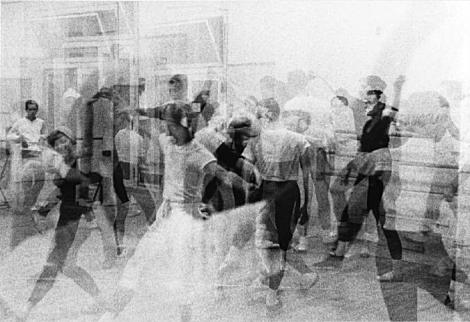 Chicago
1955
Charles Swedlund
Stephen Daiter Gallery
_______________________
Word & Thread
Cecilia Vicuńa
translated from Spanish by Rosa Alcalį
presented by Jerome Rothenberg
Word is thread and the thread is language.
Non-linear body.
A line associated to other lines.
A word once written risks becoming linear,
but word and thread exist on another dimensional plane.
Vibratory forms in space and in time.
Acts of union and separation.
*
The word is silence and sound.
The thread, fullness and emptiness.
*
The weaver sees her fiber as the poet see her word.
The thread feels the hand, as the word feels the tongue.
Structures of feeling in the double sense
of sensing and signifying,
the word and the thread feel our passing.
...(more)
_______________________
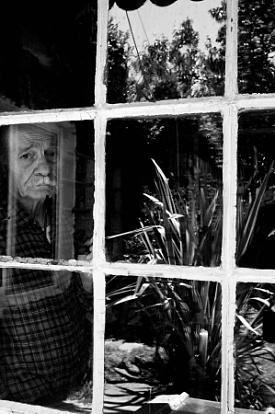
Ernesto Sabato
(1911 – 2011)
Photo by Daniel Mordzinski
1954
from Before the End
Ernesto Sįbato
Translated from Spanish by Marina Harss
words without borders
(....)How many of those immigrants continued to gaze longingly toward their own mountains and rivers, through the distance of sadness and years, from this huge, chaotic factory, this city constructed on a port, which by then had become a desert of accumulated solitudes?
As I walk through this terrible Leviathan, along the shoreline which was first beheld by thousands of immigrants, I can almost hear the melancholy plaint of Anķbal Troilo's bandoneón.
When the gloom and tumult of Buenos Aires, Make me feel even more alone, I go to the outskirts at nightfall, and Through the murky landscape of A half century, enriched and destroyed By love and disillusionment, I look back at the boy I once was. Ruefully, I recall Hearing the first drops of rain On the dried-out streets, on the Zinc roofs, "Que llueva, que llueva, la vieja estį en la cueva," Until the birds would begin to sing, and We ran, barefoot, To play with our boats made out of paper. That was the time of Tom Mix, Of colored playing chips, Of Tesorieri, Mutis, and Bidoglio, The time of carousels with horses, Of warm peanuts on winter afternoons, Of the toy train and its whistle. A world we can catch sight of When we are very alone, In this chaos of noise and cement, That has no place for courtyards filled with Honeysuckle and carnations.
Among that multitude of colonizers, my parents arrived on these shores with the hope of sowing their seed in this "Promised Land" that extended beyond their tears....(more)
_______________________

The other shore
Nikita Pirogov
via

consulting the oracle
photo - mw
_______________________
To A Tree-Brother Whose Days Are Numbered
René Char
Small harp of the larches,
On a spur of moss and fertile rocks
— Edge of the forest where the clouds break —
Counterpoint of the void in which I believe.
quoted in a piece on Char by Graham Mummery
Common Presence
René Char
translated by Charles Guenther
You're in a rush to write
As if you were late for life
If that's how it is provide company to your sources
Hurry
Hurry to communicate
Your share of wonders rebellion benevolence
You're really late for life
Unutterable life
...(more)
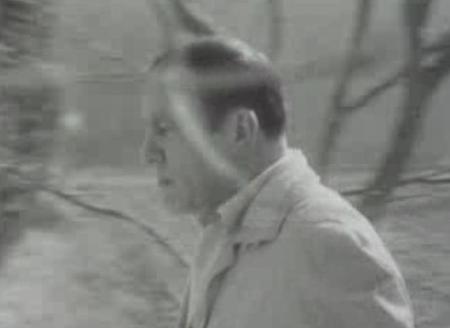
René Char
23 min. documentary
ubu
Stone Lyre: Poems of René Char
Translated by Nancy Naomi Carlson
Lightning Victory
René Char
1907 - 1988
The bird spades the earth,
The serpent sows,
Death, seasoned,
Hails the harvest.
Pluto rules the sky!
Inside us, explosion.
Inside me alone.
Insane and deaf, how could I be more so?
Gone, second self, fickle face, season of flame
and season of shade!
Lepers descend with the slow snow.
In a flash, love—equal of dread—
With an unseen hand, contains the blaze, restores
the sun, recasts the beloved.
Nothing augured a being so bold.
_______________________

Works for Children
Viktor Pivovarov
50watts
_______________________
Ungenach
Thomas Bernhard
Translation by Douglas Robertson
(....)Moro leaned back in his wing chair and said, “To be sure, although we know that everything[—]the effort, the despair, the dissimulation of life qua insanity[—]is pointless, we intend, you understand, in the words of your esteemed guardian, as a consequence [of this pointlessness, either] to [go] further and thus to walk among the billions of walkers with a head that is increasingly suspect to oneself qua one of the billions of walkers or, because for us walking now and then, from time to time, with this head grown suspect, [is] no longer opportune, seems simply to be no longer possible, is no longer possible, [to go] headless for long periods…
in certain cases, as we have seen, entire historical epochs rush through entire half-centuries or indeed whole-centuries headless…we are speed-fanatics, therefore creative…laboring in a feverish frenzy of speed, you see, which does not mean that we have heads but that we do not have them…we do not know whether we are headless or not…
which brings me to our business,” said Moro, “this dispersal…,” and “naturally, my dear Master Robert, we surmise that everything is a swindle…your esteemed guardian once put it this way: We take action and make changes, without knowing how to take action or to make changes…and have no time to smash our heads up over it, regardless of whether we have a head or not...contradictions,” said Moro, “incest in the brain, a delicate mechanism of elementary particles of an absurd megalomania…[Morbitage]…for we do not think, nature thinks…on many days we are struck by the unbearability, we extemporize, we paralyze…a sudden natural intensity succeeds natural weakness, as your esteemed guardian invariably put it: the surrealism of procreation qua the surrealism of nature…
...(more)
via Steve Mitchelmore
_______________________
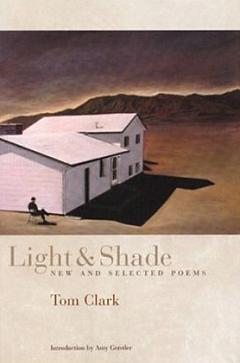
cover by Tom Clark
Light and Shade: New and Selected Poems
Tom Clark
The Natural
Elaine Equi on Tom Clark's Light & Shade (....)
Having been a long time reader and avid fan of Tom Clark, I was interested to see what new insights would come from looking at “the bigger picture.” One surprise was the idea of Tom Clark as a nature poet. Since we tend to think of nature poets as an unnaturally solemn and serene group, this category may at first seem too pious and at odds with Clark’s irrepressible irreverence and caustic wit. Reading through the book, however, I began to appreciate the elegance and particularity of what constitutes a Tom Clark landscape. His skies of “wild peach liqueur/ spilled on dirty pillows” are as distinctive as Turner’s. His view of the ocean “In Water World” has the subtle quality of Japanese silk screen:
The sea repeats itself in dreams, a green-grey world of water
Calm boats frozen in shade
Pale blank clouds, pines, rocks and kelp shrouds
Like woolly fish in mist pink distance floating
The beach stretches as far as the sand bar
Clean detached waves wash over dry stone, tears of rain drift
The water is perfectly still, restructuring everything
But Clark is not merely painterly, no matter how lush and seductive the scenery may be. His readings/ writings of particular places also convey a sense of their history, of the way they’ve changed and the social and economic forces that have changed them. He shows us not just the mansions of the very rich, but also missile sites and mining towns like Gillette (Wyoming) where:
The coal trains go through all night long
with a racket like all of hell being unleashed as noise.
At first, as you lie in bed in your motel room or mobile home
it merely disrupts your sleep, your nervous system. Later you kill
your dog and wife.
In the same way one associates Baudelaire with Paris, or Frank O’Hara with New York, Tom Clark is one of the great poet/ painters of California and the American West. It is interesting to note that one of Clark’s earlier books was entitled Paradise Resisted. Thus, one might say he is a chronicler of disenchantment with the American dream, able to capture its shimmering golden aura, as well as the dark, corrosive qualities of late capitalism run rampant....(more)
_______________________

photo - mw
_______________________
Risto Oikarinen
translation by Maria Lyytinen
The wind howls, plays the saw, bends the hazed horizon. Pupils of pitch-dark contract, light gleams from the fog: The Flying Lintula Nunnery punctures the bloated belly of the sea, masts scrape the vault of heaven torn by star pellets. The residents sway in the kitchen: the abbess whips eggbutter, a novice folds pasties, a nun pounds beef, hums a hymn rhythmically, from bar to bar, from year to year, they prepare for the horizon, for the wedding of heaven and earth, it’s rocking, it’s rocking, clouds beat the windows, I start to feel sick, I want to stop whipping, folding, pounding, chanting, sailing between the worlds.
...(more)
 beaver pond near Perth
photo - mw
_______________________
Killing is another face of our migratory mourning.
Innocently smiling
at what’s happened to us.
- Rilke, Sonnet #11 : 2
Orpheus, Eurydice, Hermes and Six sonnets from The Sonnets to Orpheus, Part Two [pdf]
Rainer Maria Rilke
translated by Art Beck
Orpheus, Eurydice, Hermes
Imagine a mineshaft of souls
running as silently through the dark
as silver veins flow, and blood welling
among the roots, on its route to humanity,
clotting like porphyry in the shadows.
Other than this - nothing was red.
There were boulders,
spectral forests, bridges over emptiness,
and the great grey blind pool
suspended over its depths
like rain clouds over a landscape.
And out of these meadows, a vague strip
of trail, gently and patiently, unwound
like a long, pale bandage.
And this is the path they traveled.
....... _______________________
Big Bridge 15
Spring 2011
This issue of Big Bridge is dedicated
to the memory of Ira Cohen
Excerpts from the Notebooks of Philip Whalen
Curated by Brian Unger
10 : IX : 67
Dreams of all my family at the cabin
in the woods, from the time the car turns
off the highway the clay bank hillside and
ferns appear as in passing lighthouse beam
then down sloping fir tree tunnel and
so to the house. Who was driving the
car? Dick Anderson, Clarence Thompson—
a friend of mine they never saw, or
some friend from earlier school days
we arrive, my grandmother is delighted,
all the rest jostling and roaring per
usual
Just now I read my mother's
Name in a poem by the Earl of Rochester,
Pepsicola in Japan.
SENNYU-JI
I went again to see Kwannon who is supposed to look like Yang Kuei Fei {by order of
Hsuan Tsung of T'ang} is it real or only beautiful picture of religious ideal?
An exquisite profile by any rule
whether or not it wrecked an empire,
broke her comb in Heaven,
strangled by a pear tree,
Real history? Really a poem?
Poem to the End of My Days
Selections from Rondo Two: Transport
Jacob Russell Big Bridge
Divigations
A Chapbook by Jerome Rothenberg
Drawings by Nancy Victoria Davis Big Bridge
Excerpts from Our Journey around the Drowned City of Is
Clayton Eshleman Big Bridge
_______________________
Otoliths issue #21
_______________________

The Market Assistant
Thomas F. De Voe
(New York, 1867)
Recipe for a Culinary Archive
An Illustrated Essay
Jan Longone
American Food in the Age of Experiment
Farming, Cooking, and Eating by the Book
Common-Place
VOL. 11 · NO. 03 · April 2011
_______________________
Four Poems
Malinda Markham
conjunctions
Admit Nothing
Bones wired for strength we are less gullible than a feast but more sturdy. Twigs metalled now
and fragrant, unwilling to collapse or unable. A crush of sirens and all the absinthe
you can drink, and oh it must be sweet, this stiff metallic knowing
Stars crushed to stalagmites in the thick (in the thick) of it. Sugar burns untended
on the tripwire. All the fireworks but no discernable source. This is not
about sympathy, the stairwell struck with light and churning. Iodine filling the ears clean like risk
and warming
A jar of fishhooks all the proof you should need
I know what I have done
And how willing
[Trampled blossoms look like nothing at all]
...(more)
Two Poems
Malinda Markham conjunctions
Three Poems
Malinda Markham conjuntionsNinety-five Nights of Listening: Poems
Malinda Markham google books
_______________________
A Refutation of Common Sense
An Interview With John Ashbery
Adam Fitzgerald
Ashbery’s translation of Illuminations may come to be seen as the definitive version for the very reasons Auden so hemmed and hawed over. Poetry since Rimbaud, and now since Ashbery, has changed. The contemporary poem is more and more a “working with the subjective life,” whether documented, invented, or deconstructed. Ashbery’s advantage as translator is intimately related to his gifts as a poetic stylist: maximum verbal invention with the greatest tonal control. In fact, the closer one examines his encyclopedic odd-job vocabulary, his penchant for shifty pronouns and astonishing ease as ventriloquist, his acrobatic mastery in nearly every poetic form he selects (not least the prose-poem), the more one sees Rimbaud alive again, redefining American lyricism as we’ve known and know it.
I sat down with Ashbery in his Hudson, New York home to talk about this recent project and his double life as poet and translator.
(....)I resist the idea that a poet can’t invent his or her own life, which may or may not coincide with the real one. In my own poetry, there are autobiographical passages, and there are also ones that sound as though they’re autobiographical even though they aren’t. I reserve the right to invent my own life story.
(....)
I think one has to look for or be awake to the sudden appearance of poetry in prose. I’ve mentioned this when people ask me what I was trying to do in Three Poems. My answer was I wanted to call attention to the poetic quality of prose that seems totally prosaic, and which can sometimes suddenly grab and move you to tears while reading a newspaper or a timetable or a guide book, and penetrate that source of the awe with which we respond to poetry.
...(more)
_______________________

grass creek park
Kingston
photo - mw
_______________________
Words without Borders
May 2011: Writing from Afghanistan
The View from Within: An Introduction to New Afghan Literature
Anders Widmark
In a discussion at the House of Culture in Stockholm just over a week ago, the Afghan writer Atiq Rahimi, having summarized the last three decades of Afghan history, concluded laconically that the present state was: “un chaos total”—a total chaos. Rahimi is far from alone in his assessment, but he is unusual in that he speaks to the situation as an Afghan, rather than an outside observer. It is the “chaos” this issue has tried to put in words—this time voiced from within.
From within I say, and this is important. Much of what is said and written about Afghanistan in the West today is still tainted by an outside perspective on the situation—a narrative that keeps repeating and reformulating earlier misconceptions and generalizations. With regard to the ongoing conflict, it is utterly incomprehensible to me, even as a layman in the field, that policy-makers on Afghanistan have failed so utterly in understanding this country after a decade of interference. No one seems to listen to the people. No one seems to hear what they are saying or read what they are writing.
Contemporary Afghan literature rests upon a rich heritage of both oral and written traditions. The two major languages of Afghanistan, Pashto and Dari, with approximately sixty million speakers altogether (including those outside Afghanistan), possess a wealth of literature, unfortunately mostly unstudied, marginalized, and known to few. Hopefully, this issue on Afghan writing will help to introduce its treasures to a broader public....(more)
_______________________
UbuWeb at 15 Years: An Overview
Kenneth Goldsmith
We’re lab rats under a microscope: in exchange for the big-ticket bandwidth, we’ve consented to be objects of university research in the ideology and practice of radical distribution.
_______________________

photo - mw
_______________________
Sendak, picturing mortality
Amy S. Rosenberg
"I was very fond of the kids," he says. "I saw a photograph of them. They're all grown up, and, oh, my God . . ."
His voice fades. Most of his ruminations end this way - not morosely but, as in his books, with a kind of rollicking doom, barreling toward repeated destinations: the passage of time, the state of the world, his own mortality, the basic futility of life, a dark but fun stickball game.
"When I kick the bucket," he begins - about to describe why he's glad his stuff has ended up at the Rosenbach, where it will be seen, not archived - then goes parenthetical: "Which can't be too long from now. I think I'm getting out just in time. Watching the news, everything seems to be in disorder. Everybody seems to be unhappy. We've lost the knack of living in the world with the sensation of safety."
The man who imagined escapes as romps that ended with warm suppers says, "I wonder why people still have children. I mean, why put kids in the world when the world is so insecure? This is how old people rationalize their death. You get a little crotchety with the world....(more)
|
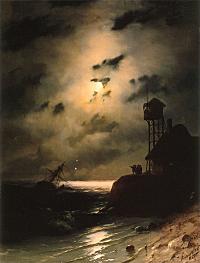
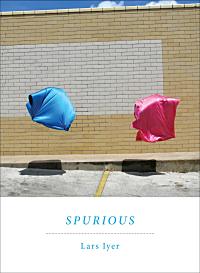


 The Age of Briggs & Stratton
The Age of Briggs & Stratton









































